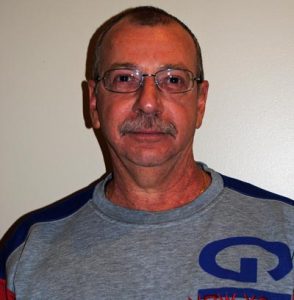Interview, Ron Trovato, USA
 Ron Trovato (b. 1950) was born in the Rochester, NY, area and grew up in West Irondequoit. After graduating from high school, Trovato volunteered for the United States Army. He completed basic training at Fort Dix, New Jersey, and was sent to Fort Hollabund, Maryland, for intelligence school and Fort Blis, Texas, to learn Vietnamese. After his training, Trovato was sent to Vietnam, where he served with a Vietnamese unit. He completed two tours of duty in Vietnam between 1969 and 1971 and reached the rank of Army Sergeant E-5. He was discharged on February 17, 1971, in Oakland, California. Upon returning home, Trovato traveled the country, ultimately finding work and getting an education in Tampa, Florida. He returned to the Rochester area, got married, and went to work first for the United States Post Office, and then for a social work program in Buffalo, New York. He eventually became a probation officer, returned to the Rochester area, and joined the local Vietnam Veterans of America, Chapter 20.
Ron Trovato (b. 1950) was born in the Rochester, NY, area and grew up in West Irondequoit. After graduating from high school, Trovato volunteered for the United States Army. He completed basic training at Fort Dix, New Jersey, and was sent to Fort Hollabund, Maryland, for intelligence school and Fort Blis, Texas, to learn Vietnamese. After his training, Trovato was sent to Vietnam, where he served with a Vietnamese unit. He completed two tours of duty in Vietnam between 1969 and 1971 and reached the rank of Army Sergeant E-5. He was discharged on February 17, 1971, in Oakland, California. Upon returning home, Trovato traveled the country, ultimately finding work and getting an education in Tampa, Florida. He returned to the Rochester area, got married, and went to work first for the United States Post Office, and then for a social work program in Buffalo, New York. He eventually became a probation officer, returned to the Rochester area, and joined the local Vietnam Veterans of America, Chapter 20.
In this interview, Trovato discusses how difficult war is, his interaction with Vietnamese culture, and the transition back to civilian life. Trovato remembers the terrible conditions in the jungle, looking out for land mines, and seeing the results of the Tet Offensive. He has emotional difficulty recalling his combat experiences and explains, “You can’t prepare for war, the enormity of it.” He says his experience was unique because he served with a Vietnamese unit and learned the culture and language more than other soldiers. Trovato recalls that Cambodians living in Vietnam were looked down on and he likens their treatment to that of African Americans. He shares, “Coming home was the hardest thing I ever did in my life, by far,” and that he thinks anti-war protestors did not understand the tough moral decisions soldiers faced in Vietnam. Trovato says joining the VVA was one of the best things he ever did and he appreciates the instant connection he has with other veterans.
